The dangers of drinking too much alcohol are not only physical like organ damage, but also mental health, such as depression and anxiety disorders. There are many other dangers of too much alcohol, which we will explore together.
Every year, alcohol is responsible for more than 140,000 deaths in the United States. It is a major contributor to preventable chronic diseases such as cancer and liver disease, and it plays a role in many other health problems.
Despite these risks, alcohol consumption remains common among adults in the U.S.. According to a study from 2019, nearly 86 percent of adults reported drinking alcohol at some point in their lives, and approximately 55 percent reported drinking in the past month.
While moderate alcohol consumption is generally considered safe, drinking too much can lead to a host of problems. This article will discuss the dangers of excessive alcohol consumption and how you can help a loved one find freedom from alcohol addiction.
What Does Too Much Alcohol Mean?
Drinking alcohol can have both short and long-term consequences on our health. But what is considered “too much” alcohol? First, we need to define a standard drink.
The standard drink is considered to be a 12-ounce bottle of beer, a 5-ounce glass of wine, or 1.5 ounces of 80-proof (40 percent) distilled spirits. All of these drinks contain about the same amount of alcohol at around 14 grams.
Moderate drinking is considered to be two standard drinks per day for men and one for women. Excessive drinking is more than four drinks per day for men and more than three drinks a day for women.
What Are the Dangers of Too Much Alcohol?
We all know that drinking alcohol can lead to some pretty serious legal and social consequences. For instance, you could end up in jail if you drink and drive. Or, you could get into a fight while you’re drunk and wind up getting hurt or hurting someone else.
But what about the long-term effects of alcohol and drinking too much?
Drinking too much alcohol can lead to a host of medical conditions like heart disease, liver damage, and cancer. It may also interfere with your mental health, resulting in anxiety and depression. If you’re pregnant, drinking alcohol can harm your unborn child.
And if that wasn’t enough, heavy drinking can also lead to stroke. That’s because alcohol consumption can cause your blood pressure to rise, which puts you at a greater risk of suffering a stroke.
If you know someone who has a problem with drinking too much alcohol, there are a number of things you can do to get them the help they need, including detoxification.
Alcohol Use and Your Health
Drinking alcohol comes with a range of risks, especially when consumed in large quantities or on a regular basis. Short-term risks include injuries, car accidents, and blackouts. Long-term risks include liver damage, cancer, and brain damage.
What’s more, alcohol use can also lead to a variety of mental health problems and addiction. That’s why it’s so important for alcoholics to get help.
If you’re concerned about a loved one’s alcohol consumption, talk to a qualified professional. They can help you determine the best course of action.
As BAC Increases, so Do the Risks
Drinking too much alcohol can be extremely dangerous. BAC, or blood alcohol concentration, is the amount of alcohol in your bloodstream. As your BAC rises, so does the risk of accidents, injuries, and even death.
There are three main stages of drunkenness, each with its own risks:
Legal Intoxication (0.08 BAC): At this stage, you may have feelings of euphoria, relaxation, and lowered inhibitions. You may also have trouble with fine muscle control. These effects can make it dangerous to drive or operate machinery.
Impairment (0.08-0.40 BAC): At this stage, your judgment and coordination are impaired. You may have trouble walking, talking, and making decisions. You’re more likely to take risks that you wouldn’t normally take. You’re also more likely to get injured or hurt yourself.
Coma/Death (0.40 BAC and above): At this stage, breathing and heart rate are depressed, and you can die from alcohol poisoning.
What Is an Alcohol Overdose?
An alcohol overdose occurs when a person drinks too much alcohol in a short period of time. This can lead to serious health problems, including coma and death.
Critical Signs and Symptoms of an Alcohol Overdose
The critical signs and symptoms of an alcohol overdose are:
- Confusion
- Vomiting
- Seizures
- Slow or irregular breathing
- Hypothermia (low body temperature)
- Loss of consciousness
If you see someone exhibiting these signs, it is important to call 911 immediately.
Alcohol Dependence
Alcohol dependence, also known as alcoholism, is a serious problem. It is a progressive disease, meaning it gets worse over time. People who are dependent on alcohol have a strong need to drink and cannot control how much they consume.
And as you learned above, alcohol dependence can result in numerous health concerns. It can also lead to problems with work, school, and personal relationships.
If you know someone who is struggling with alcohol dependence, please seek help right away. Many resources are available to assist you, including Alcoholics Anonymous and other support groups. Help can also be found at inpatient treatment centers.
Finding Treatment for Alcohol Use Disorder
It’s not always easy to tell when your loved one’s drinking has crossed the line from social or recreational to problematic. However, if you find that they’re regularly drinking more alcohol than they’d like or that it’s impacting their life (and yours) in negative ways, it may be time to seek out help.
At Long Island Rehabs, we understand how difficult it can be to face an alcohol use disorder, but we also know that treatment can be immensely helpful in getting a life back on track. Our programs are designed to provide your loved ones with the tools and support they need to make lasting changes.
If you’re ready to take the first step and help your loved one with recovery, we encourage you to reach out to us today. We’ll be happy to answer any questions you have about our program.


